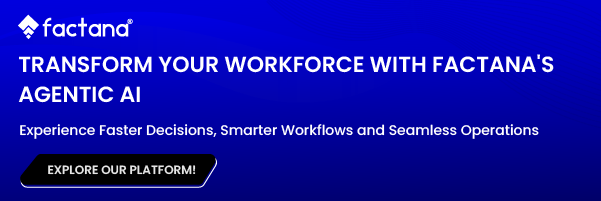Learning Center
Agentic AI
What is Agentic AI ?
Artificial Intelligence (AI) has moved far beyond automating repetitive tasks or generating predictions. The latest leap in this field is Agentic AI, a new form of AI that can make decisions, act independently, and continuously adapt to its environment. But what exactly is Agentic AI, and why is it being called the next big step in AI evolution? Let’s break it down in simple terms.
What is Agentic AI?
Agentic AI refers to artificial intelligence systems designed to act autonomously without constant human supervision. Unlike traditional AI models that follow pre-programmed rules, agentic AI can:
- Perceive its environment
- Set goals
- Plan strategies
- Take actions
- Adapt based on feedback
In short, it’s like having a digital agent that not only understands tasks but can also make real-time decisions and adjust to changing conditions.
Take a look on the detailed guide : What is Agentic AI and How Does It Work in Industrial Operations?
How Agentic AI Works
To understand Agentic AI, let’s look at its core functions:
1. Perception and Data Gathering
Agentic AI uses sensors, APIs, and data streams to understand its environment. For example, IoT devices in factories or real-time stock market feeds in finance.
2. Decision-Making
Instead of just reacting, these systems evaluate multiple options, predict outcomes, and choose the best action. They often rely on reinforcement learning and neural networks to refine decision-making.
3. Goal-Oriented Planning
Agentic AI doesn’t just execute tasks , it sets objectives. For instance, in manufacturing, it may optimize production schedules to reduce downtime and maintain quality.
4. Action and Adaptation
Once a plan is in motion, agentic AI executes tasks and adapts on the go. If conditions change, it recalibrates without waiting for human input.
This closed-loop system perception, decision-making, planning, and adaptation enables agentic AI to thrive in complex and dynamic environments.
Real-World Applications of Agentic AI
The true power of Agentic AI becomes clear when we explore its use cases:
- Industrial Automation – Optimizing production lines, predicting equipment failures, and managing factory operations in real time.
- Supply Chain Management – Tracking inventory, forecasting demand, and rerouting logistics autonomously to avoid delays.
- Healthcare – Monitoring patients, assisting with diagnostics, and recommending treatments while adapting to changing conditions.
- Finance – Automating trading, portfolio optimization, and fraud detection with minimal human oversight.
- Customer Service – AI-powered agents that handle queries, resolve issues, and escalate cases intelligently.
Benefits of Agentic AI
Adopting agentic AI comes with several advantages:
- Autonomy and Efficiency – Reduces the need for human involvement in decision-making.
- Scalability – Can manage large-scale operations across different geographies.
- Continuous Learning – Improves performance over time through experience.
- Error Reduction – Learns from mistakes and adapts, lowering error rates.
- Cost Savings – Cuts labor and operational costs through automation.
Challenges and Considerations
While promising, Agentic AI also brings new challenges:
- Ethical Concerns – Who is accountable if AI makes a wrong or biased decision?
- Security Risks – Autonomous systems can be vulnerable to hacking or manipulation.
- Technical Complexity – Designing and maintaining these systems requires advanced expertise.
- Regulatory Barriers – Industries like healthcare and finance must comply with strict laws.
The Future of Agentic AI
Agentic AI is expected to play a central role in:
- Smart cities – managing traffic, energy, and public safety autonomously.
- Autonomous vehicles – making real-time driving decisions.
- Industrial operations – enabling fully automated factories.
- Personal assistants – becoming proactive digital partners rather than just reactive tools.
Looking ahead, the goal is to build AI that not only acts independently but also demonstrates ethical reasoning and adaptive intelligence at scale. Still, human oversight will remain essential, especially in high-risk industries.
Conclusion
Agentic AI isn’t just another AI buzzword ,it’s a paradigm shift in how machines think, decide, and act. By combining autonomy with continuous learning, these intelligent agents are moving from being simple tools to becoming collaborative partners in business, healthcare, finance, and everyday life.
For organizations, the question is no longer “Should we adopt AI?” but “How quickly can we leverage agentic AI to stay ahead?” Those who explore and implement it now will shape the competitive landscape of tomorrow.
As this technology matures, the real challenge will be striking the right balance between autonomy and human oversight, ensuring that AI remains not just powerful but also responsible, ethical, and trustworthy. The rise of Agentic AI signals the beginning of an era where humans and machines don’t just coexist, they co-create the future.

